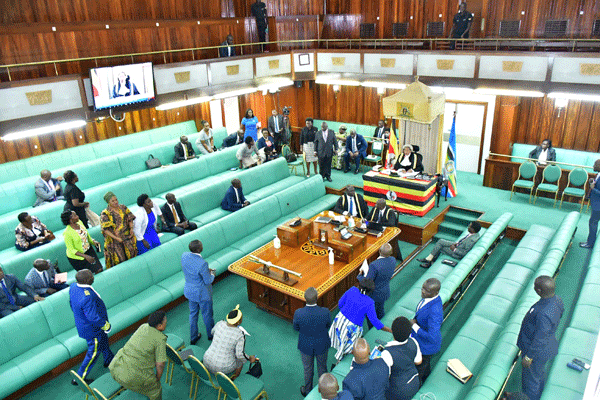Uganda’s financial landscape is facing scrutiny as Parliament questions the government’s expenditure of 4 trillion shillings amidst concerns about fiscal transparency and accountability. Despite efforts by finance managers to secure funds for the 2024/2025 Fiscal Year (FY) budget of 58.3 trillion shillings, challenges persist in financing the national budget deficit.
Recent revelations in Parliament have shed light on the government’s utilization of funds from the Consolidated Fund without proper parliamentary approval. The treasury’s actions, including a statutory revision that inflated the approved national budget from 52.737 trillion shillings to 60.27 trillion shillings, have been labeled as “irregular” and have sparked significant fiscal concerns.
Despite the approval of a 3.49 trillion shilling supplementary budget for the current FY, the Treasury found this amount insufficient to cover government spending requirements. Consequently, an additional 4 trillion shillings was sought without parliamentary approval, bringing the total excess spending for the FY to 7.49 trillion shillings.
During a session with the House Budget Committee, Mr. Henry Musasizi, the junior Finance minister, defended the government’s actions, stating that certain expenditures necessitated immediate payment adjustments due to market fluctuations. However, he acknowledged the need for improved transparency and pledged to seek parliamentary approval for future financing requirements.
In response to Parliament’s concerns, Mr. Patrick Isiagi, the Budget Committee chairperson, called for investigations into the unauthorized spending. He emphasized the importance of accountability and warned against mismanagement of the Treasury, highlighting the need for collaboration between Parliament and the Finance ministry.
The implications of the government’s fiscal transparency issues extend beyond budgetary concerns. Raquel Ferreira, a senior technical advisor, emphasized the importance of fiscal transparency in ensuring effective program implementation and economic stability. Improved transparency fosters trust and accountability, leading to better outcomes in sectors such as health and education.
Meanwhile, the Treasury’s release of funds to government entities for the fourth quarter of the 2023/2024 FY has raised additional questions about financial management. The disbursement of 7.678 trillion shillings to ministries, departments, and agencies (MDAs) represents a surplus of 13.1 percent, yet critical expenditures remain underfunded.
Notably, infrastructure projects received significant allocations, with 2.46 trillion shillings earmarked for transportation infrastructure rehabilitation. However, sectors such as health received minimal funding, highlighting the disparities in resource allocation.
The government’s efforts to address outstanding liabilities and implement initiatives like the Parish Development Model (PDM) underscore its commitment to financial management. However, discrepancies in budget coverage and program implementation raise concerns about the effectiveness of these efforts.
To bridge the financing gap, the government has proposed new tax measures aimed at raising revenue and reducing reliance on external borrowing. However, critics argue that these measures disproportionately impact the poor and may exacerbate economic challenges.




















